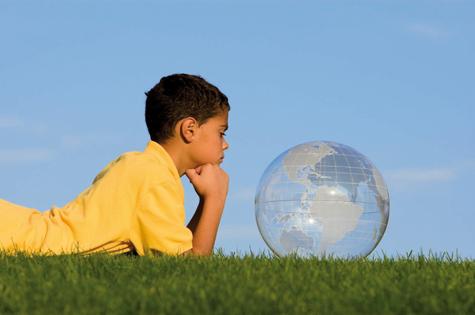Twenty-five years ago last month, the countries that compose the United Nations reached a landmark agreement that laid the foundation for much-needed strengthening of children’s rights and protections in nearly every country around the world.
Today, the Convention on the Rights of the Child (CRC) remains the only formal global effort to improve children’s rights and the most widely ratified human rights treaty in history. Only three UN member nations have not ratified the treaty: Somalia, South Sudan and the United States.
“The Convention on the Rights of the Child is a promise from our global community to all children,” says Dr Jody Heymann, founding director of the World Policy Analysis Center and dean of the UCLA Fielding School of Public Health.
“Everyone deserves to know whether their country is fulfilling that promise and how it compares to other countries facing similar opportunities and constraints.”
To mark the 25th anniversary of the CRC, the UCLA center assessed 190 U.N. countries’ progress toward fulfilling the CRC’s commitment to children in critical areas such as the right to education, protection from child labour and child marriage, and discrimination of children with disabilities.
How are the world’s children faring?
Child labor: Some 168 million children around the world are still engaged in some form of child labour. While 74% of the countries that ratified the CRC no longer allow children to engage in hazardous work, once legal exceptions are taken into account, nearly half of CRC countries still allow children to work in jobs that endanger their health and safety, including mining and factory work.
Education: 24% of the countries that ratified the CRC charge tuition before the end of secondary education. Tuition fees create barriers to education, particularly for girls and poor and marginalized children, and there are still large gaps in secondary enrolment.
Child marriage: 88% of countries that ratified the CRC have set a minimum age for marriage of 18 or older. But when exceptions with parental consent are included, only 49% of these countries protect girls from early marriage.
Children with disabilities: Only 19% of countries that ratified the CRC explicitly protect the right to education for children with disabilities or prohibit discrimination in education based on disability.
Parental leave: The US is the only high-income country in the world that doesn’t guarantee mothers paid leave after the birth of a child.
Dr Heymann noted that the welfare of children is dependent on social conditions.
“Working parents need paid leave so they can afford to care for their newborns,” she says.
“Financially feasible education shapes which children have a chance to attend school and for how long. Wages that enable families to exit poverty shape the conditions under which children live.
“The Convention on the Rights of the Child laid the foundation 25 years ago for all children to have a chance at healthy development, so they can thrive now and grow up to lead healthy and productive adult lives. But this will only come to fruition if we are as focused on the CRC’s full implementation as on its passage.
“With the passage of the CRC, the rights of the world’s youngest citizens were recognised,” Heymann said. “Yet we still lag on the implementation of universal protections important to children’s healthy development.”



















__small.png)










